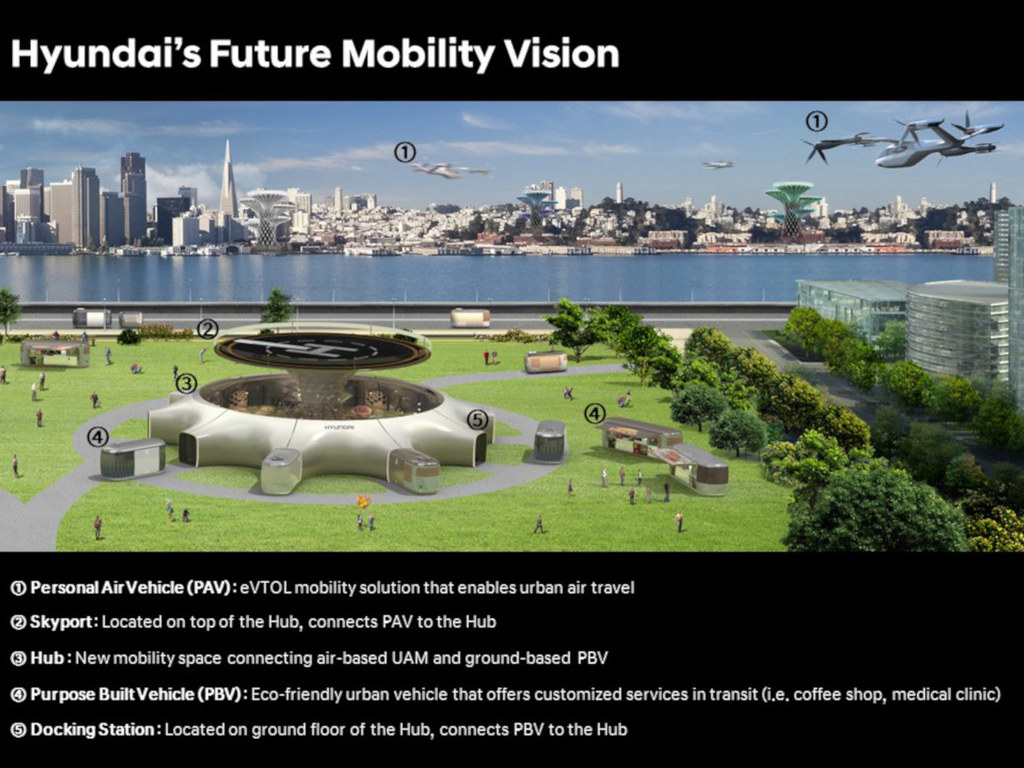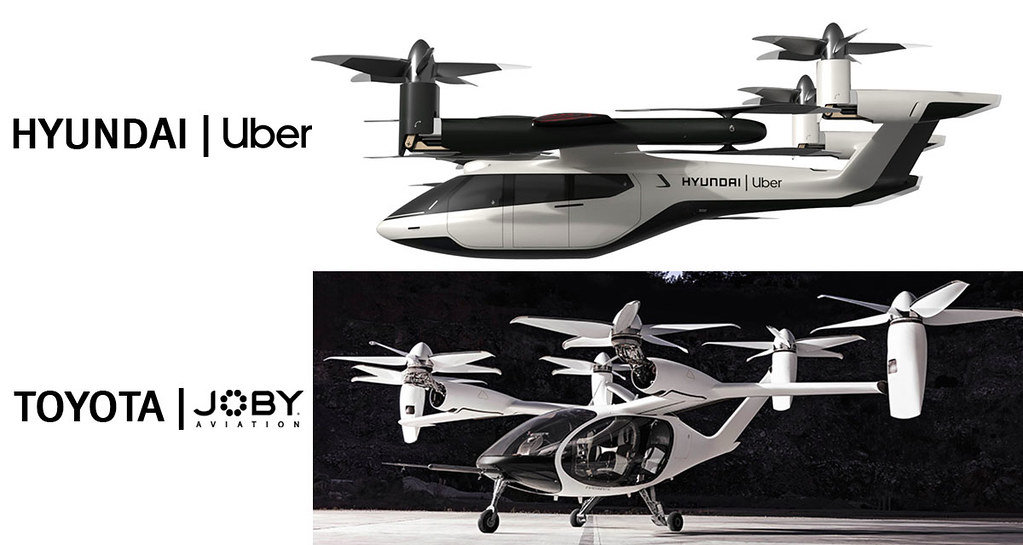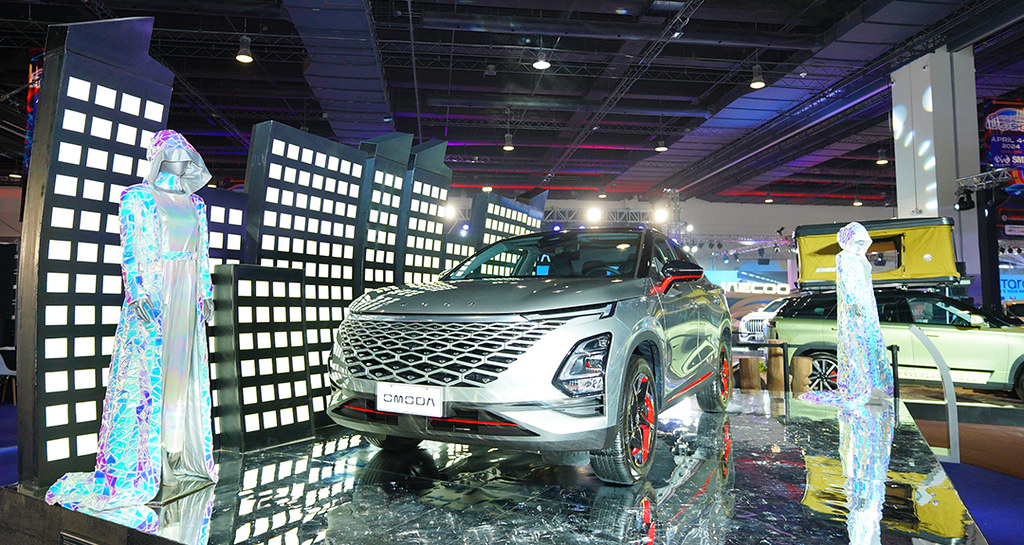The Hyundai S-A1 Personal Air Vehicle (PAV)
Just over a week ago at the annual Consumer Electronics Show in Las Vegas, Hyundai stunned showgoers (and the world) when they announced their plans for an electric flying car.
But before you start rushing out to your driveway to install runway landing lights or if you’re wondering if you’ll need a pilot’s license, read on first.
Hyundai’s concept of personal aviation does offer “liberation from traffic gridlock;” but it’s a three-pronged solution, the first of which is what the Korean conglomerate calls Urban Air Mobility (UAM).
UAM enables runway-free urban air travel with what Hyundai calls Personal Air Vehicles (PAVs) capable of electric vertical takeoff and landing (eVTOL).

“We are looking at the dawn of a completely new era that will open the skies above our cities. Urban Air Mobility will liberate people from gridlock and reclaim time for people to invest in activities they care about and enjoy,” said Jaiwon Shin, EVP and Head of Urban Air Mobility Division at Hyundai Motor Company.
Hyundai also announced four pillars of UAM: safe, quiet, affordable, and passenger-centered.For safety, the PAV has multiple rotors to provide multi-layer redundancy and ensure safe operation, and a parachute deployment system will be placed in the vehicle for emergencies. (The parachute is for the whole vehicle itself, so you don’t have to jump out in an emergency.)
PAVs will be designed with low noise levels, so cities won’t be plagued with the sound of dozens of helicopters buzzing overhead (and passengers will be able to converse normally without a headset).
UAM will be made affordable and accessible through utilization of Hyundai’s manufacturing know-how in automobiles, aerodynamic design, use of lightweight from carbon composite materials, productive design technology, and reduced operating costs.
The S-A1, Hyundai’s concept PAV, is designed to seat five people, including a pilot. The S-A1 will be operated initially by a pilot during the early stages of commercialization and enable autonomous operation once the relevant technologies are developed.
The S-A1 concept PAV was developed jointly with Uber, the world’s largest mobility company. “Hyundai is our first vehicle partner with experience of manufacturing passenger cars on a global scale. We believe Hyundai has the potential to build Uber Air vehicles at rates unseen in the current aerospace industry, producing high quality, reliable aircraft at high volumes to drive down passenger costs per trip. Combining Hyundai’s manufacturing muscle with Uber’s technology platform represents a giant leap forward for launching a vibrant air taxi network in coming years,” said Eric Allison, Head of Uber Elevate.
Similar to what you might see in a futuristic movie, Hyundai plans to operate PAVs in conjunction with a centralized “skyport” located at the heart of urban areas. Each skyport has a landing pad on the roof, which then allows the passengers to disembark and then board driver-driven (or autonomous) mini-bus-like vehicles, which will then transport them to specific drop-off points from the skyport’s hub.
Cool, right? And seemingly very feasible.


Toyota reaches for the sky
Mere days after Hyundai’s CES bombshell, Toyota announced its own flying car.
And like Hyundai with Uber, the Japanese automotive giant is collaborating with another transport company, this time Joby Aviation, an aerospace company that develops eVTOL aircraft to enable the deployment of fast, quiet and affordable air transportation services. The collaboration reflects Toyota’s recognition of the long-term potential of the urban air mobility market to meet the evolving needs of society, as well as Joby’s position as an industry leader in working to deliver safe and affordable air travel to everyone.
“Air transportation has been a long-term goal for Toyota, and while we continue our work in the automobile business, this agreement sets our sights to the sky,” said Toyota Motor Corporation President and CEO Akio Toyoda. “As we take up the challenge of air transportation together with Joby, an innovator in the emerging eVTOL space, we tap the potential to revolutionize future transportation and life. Through this new and exciting endeavor, we hope to deliver freedom of movement and enjoyment to customers everywhere, on land, and now, in the sky.”
As the lead investor in Joby’s $590M Series C financing, Toyota is continuing to leverage emerging technologies to provide “Mobility for All.” In addition to investing $394M in Joby, Toyota will share its expertise in manufacturing, quality and cost controls for the development and production of Joby Aviation’s breakthrough eVTOL aircraft. More details of the prototype aircraft and production plans will be announced at a later date.
Joby Aviation founder and CEO JoeBen Bevirt said: “This collaboration with Toyota represents an unprecedented commitment of money and resources for us, and for this new industry, from one of the world’s leading automakers. Toyota is known globally for the quality and reliability of their products driven by meticulous attention to detail and manufacturing processes. I am excited to harness Toyota’s engineering and manufacturing prowess to drive us toward our dream of helping a billion people save an hour of commuting time every day.”
Both companies believe that leveraging synergies with the automobile technologies as well as integrating best practices from the Toyota Production System will help facilitate the efficient mass production of these aircraft, while also helping Joby deliver high quality, durable and reliable aircraft, and meeting exacting safety standards. Who better to erase any consumer nervousness in small-aircraft flying than Toyota, right?
Toyota Motor Corporation EVP Shigeki Tomoyama will join Joby’s board of directors and play an active role in setting strategic direction at the Board level. Toyota’s collaboration with Joby Aviation should bring the concept of a flying car into the mainstream and initiate a new category of moving people and goods.
Joby is a leader in the development of eVTOL aircraft, which combine elements of drones, helicopters and small airplanes, offering benefits that include high reliability, zero emissions, fast flight speeds and quiet operation.













